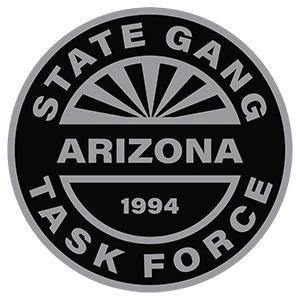
Main navigation

Gang & Immigration Intelligence Team Enforcement Mission (GIITEM)
The Gang & Immigration Intelligence Team Enforcement Mission (GIITEM) is a statewide multi-agency task force led by the AZDPS Gang Enforcement Bureau. The Arizona State Gang Task Force's mission is to suppress criminal gangs and transnational crime in collaboration with citizens, partnered agencies, and intelligence resources.
Vision Statement
The vision of the Arizona State Gang Task Force is to be the national model of a multi-agency gang task force.
GIITEM also manages the Detention Liaison Officer (DLO) Program, an intelligence component comprised of detention officers from various sheriff's and corrections departments. DLOs serve as intelligence resources for local, county, and state law enforcement by reporting criminal intelligence information related to the GIITEM mission and assisting detectives with investigations.
GIITEM Contact Information
Arizona Department of Public Safety
|
Gang Enforcement BureauPhone Number: (602) 223-2561 Address: P.O. Box 6638, MD 3700 United States |
Northern District:(928) 214-2535 |
Central District:(602) 223-2561 |
Southern District:(520) 746-4548 |
Major Offender District:(602) 223-2561 |
GIITEM
The Gang Intelligence Team Enforcement Mission (GITEM) concept was conceived in late 1992 by law enforcement agencies in the metropolitan Phoenix area to maximize law enforcement's effects on gangs. The mutually supportive program was designed to cripple the criminal activity of gangs as well as to reduce the impact on law enforcement agencies that such concentrated enforcement produces. This effort was a response to the need for all law enforcement to take a strong and coordinated stance against the epidemic of gang and street violence.
During the first year of operation, GITEM implemented two separate regions or deployment centers (in Phoenix and Tucson) from which officers could be deployed to support law enforcement agencies statewide. GITEM consisted of employees from 22 different agencies.
In 1996, GITEM established two undercover squads, the first in the nation, specifically to infiltrate and dismantle gangs as criminal enterprises. The squads were based out of Phoenix and Tucson but conducted operations in every area of the state.
In 2003, following the 9/11 attacks, GITEM was affected by changing priorities and budget shortfalls and underwent a significant downsizing process to meet budgetary restraints.
In 2006, Arizona lawmakers took an aggressive stance on stopping gang and transnational-related crimes, revitalized the old GITEM, and created the new GIITEM, the Gang and Immigration Intelligence Team Enforcement Mission. In addition, those same lawmakers provided special funding to the task force and added the responsibility of deterring border-related crimes.
GIITEM’s unique approach brings together law enforcement from municipal, county, state, and federal jurisdictions in a coordinated, intelligence-driven approach to deal with gangs and violent human smuggling organizations on a large scale. Traditionally, Arizona agencies addressed the gang and illegal immigration problem individually rather than collectively. This separate approach resulted in displacement rather than focused and directed enforcement efforts and identification. The primary benefit of the GIITEM task force is the combined resolution of the involved agencies and citizens, who ultimately are the recipients of the project’s services, to cripple gangs and human smuggling organizations in the state rather than displacing these problems into adjoining jurisdictions.
GIITEM is one of only a few multi-agency statewide gang and illegal immigration task force programs in the country. GIITEM’s success can be attributed to its ability to confront gang and illegal immigration problems statewide without regard to the everyday jurisdictional issues that affect municipal and county law enforcement agencies.